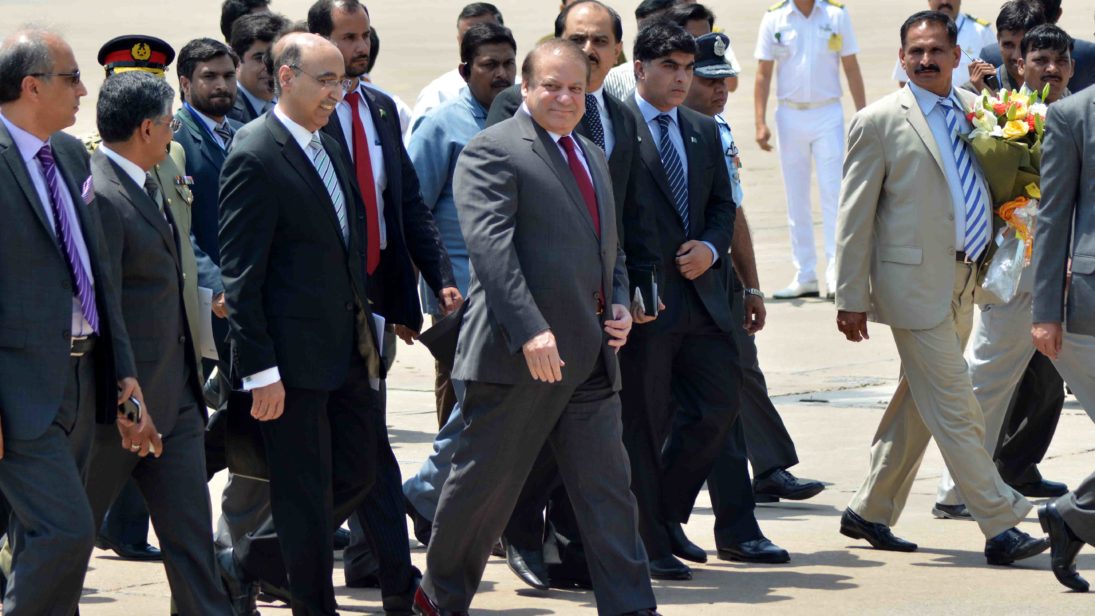
While democracy requires attention to structural prerequisites – including a parliamentary system of government, regular elections, a strong judiciary ensuring checks and balances, and smooth relations between civilian and military institutions of the state – it also requires a political culture that is conducive to its consolidation. In other words, for a democracy to institutionalize and then consolidate, the beliefs and values of ordinary citizens count.
During the course of my lectures at the University, I would pose a question to students – asking whether a democratic system is best suited to the Pakistani political system? The answer most generally would be that during the phase of democracy, political leaders and parties are prone to corruption and mis-governance, and that periods of dictatorship, most recently under General Pervez Musharraf, guaranteed socio-political stability and – most crucially – economic development. Prodding them further, I would say: “But Pervez Musharraf was not a democrat,” and the answer again, generally would be: “That does not matter, we want good governance, not a disorderly and corrupt democracy!”
The political culture hence reinforces the argument that it is political and economic stability that ordinary Pakistanis desire and given the choice between good governance and democracy, people will opt for good governance. Hence, good governance under an authoritarian government is better than the anarchy which besets Pakistan during a democratic political arrangement. The argument is then stretched further to reiterate that Pakistan is, in fact, not suited to democracy. This is what in Pakistan is called the danda (stick) theory. It goes something like this: Pakistanis are ignorant and illiterate and prone towards violence, law-breaking and felony. The only thing that keeps them in check is if a strong man, on the top of the political system, a Leviathan, keeps the disorderliness of the masses in check and guarantees stability through force. Having heard this story of our political culture since my days as a student, I was forever opposed to it. Well, if the Pakistanis are ignorant and illiterate why not make them un-ignorant and literate.
In more ways than one, democracy in Pakistan in recent times has more often been the butt of jokes for citizens of the state. The 2008 elections ushered in probably one of the most corrupt regimes in Pakistan but one which survived and completed its five years in office. Interestingly, one could note that while people condemned Asif Zardari for his corruption and shady deals, they also came to appreciate him for his propensity to “survive.” While Asif Zardari survived his five years in power, a most crucial question was how and in what ways would people approach the general elections that took place in 2013? That they would display apathy and not vote in numbers in the coming elections was what conventional wisdom dictated at the time.
Interestingly, Pakistan’s political culture did not display pessimism with the democratic political process and more than 50% of the population voted. This meant that despite the failings of a democratic government, under the PPP, the people of Pakistan reserved their faith in the democratic process as a means of change. This time, the voice of the people, was echoed by Imran Khan and his Tehreek-e-Insaf. Basing his campaign on accountability, an end to corruption, resuscitation of Pakistan’s fledgling economy and federalism in Pakistan, Imran Khan was able to mobilize one of the most politically conservative sections of Pakistani society, the middle and upper middle classes.
The general elections in 2013 can be considered as truly historic. For one, the elections signified a peaceful transfer of power with one government completing its full term in office, relinquishing power and making way for another. This was remarkable because it had never happened before in Pakistan’s entire political history. Second, the mobilization of the masses through a now revitalized Tehreek-e-Insaf, signaled that Pakistan’s national political space was moving beyond the mainstream politics of PPP and PML (N). A welcome development, the induction of the Tehreek-e-Insaf in Pakistani politics provides a strong incentive to both PPP and PML (N) to perform well or otherwise, risk losing political power in the next elections.
While the elections and rise of Imran Khan may be seen as a cause for optimism in Pakistan’s quest for democratic consolidation, the political culture in Pakistan is still in a state of flux and evolving. A good measure of recent thinking are the sit-ins and protests in Islamabad which have characterized Pakistani politics for the past four months. For some, the street sit-ins and protests are a sign of endemic political anarchy which visits Pakistan every time there is a democratic government in power. Come democracy, come political instability. For others, including the protestors themselves, the protests are a maturing of Pakistan’s democracy as protestors lay claim for more democracy to be instituted and are dissatisfied with the present state of democracy in the country.
This latter aspect of Pakistan’s political culture is set on an interesting, yet dangerous, path. It is in more ways than one an aspiration for good governance, not necessarily, democracy. While it may be impossible to separate the two in any assessment of democratic consolidation in Pakistan, it is democracy which should take precedence over good governance. Why? Because good governance comes from democracy, not the other way round. While entities like Singapore and Hong Kong may be contrary examples to the argument being made here, it is virtually impossible, as recent protests in Hong Kong indicate to keep people subjugated for long in an authoritarian political system that guarantees good governance but not democracy.
While the average Pakistani voter yearns for good governance and socio-political and economic stability, it should be mindful of not injuring the nascent democratic process in the country through its street power. The maturing of Pakistan’s political culture, in the first instance, requires abrogating the danda theory – for a danda, at the end of the day, tends only to injure and kill people, both physically and ideationally.
***